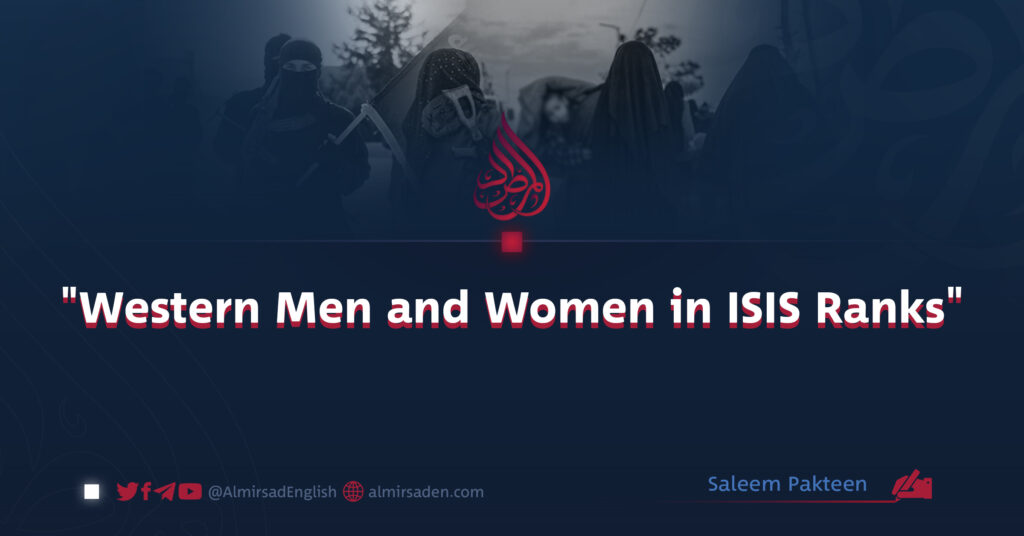Author: Saleem Pakteen
Since 2010, when ISIS first appeared on the geopolitical landscape in Iraq and later extended its reach into Syria, the majority of its members have been individuals from various Western countries and ideologies. These individuals have been dispatched in accordance with Western government policies and in collaboration with ISIS.
The presence of Western individuals within the ranks of ISIS is apparent. Western nations actively encourage and persuade individuals from both their own countries and others to join ISIS, bearing a significant portion of the financial costs associated with these recruits and bolstering ISIS’s ranks.
Western powers aim to promote ISIS’s ideology and actions as a destabilizing force against Asian nations, fostering discord within Asian communities to hinder unity. They foster a malevolent entity that disregards both religious principles and legal norms.
During the initial years of ISIS, a considerable number of individuals from European nations journeyed to Iraq and Syria. It is widely acknowledged that, during this period, the majority of those aligning themselves with ISIS were proponents of British policies.
As documented in the book “Islamic State: The Digital Caliphate,” beyond those groups who share ISIS’s ideology, hundreds of individuals from 80 European and Western countries crossed from Turkey into Syria. These foreign fighters, aged between 15 and 20, had little or no prior combat experience.
A remarkable aspect was the inclusion of young women who accompanied these foreign combatants. Many of these women, hailing from Western backgrounds, wedded ISIS militants in Syria, contributing to a burgeoning generation within ISIS. Some of these women even underwent military training and subsequently served as suicide bombers.
The arrival of numerous individuals from Europe, particularly London, and other Western nations, in a methodical and orchestrated manner, underscores the fact that the ISIS project was established with comprehensive support from Western countries, a collaboration that endures to this day.
The clear and undeniable collaboration of Western nations with ISIS is further underscored by Pakistan’s role, effectively serving as a diplomatic base for London in the region. Western powers facilitated ISIS’s entry into Pakistan, establishing their bases. Throughout the democratic era, numerous senior military and intelligence personnel, supported by Western entities, furthered the interests of ISIS. In certain domains, when the Islamic Emirate of Afghanistan (IEA) fighters were engaged in combat with ISIS, certain democratic soldiers were dispatched to provide reinforcement for ISIS.
When the Islamic Emirate of Afghanistan (IEA) came to power, many soldiers from the democratic regime aligned themselves with ISIS with Western backing, indicative of ongoing Western support for ISIS and the provision of resources and infrastructure.
Since ISIS members are from diverse groups and countries, they lack a coherent path and a legal framework.
